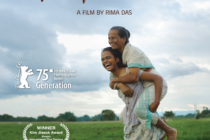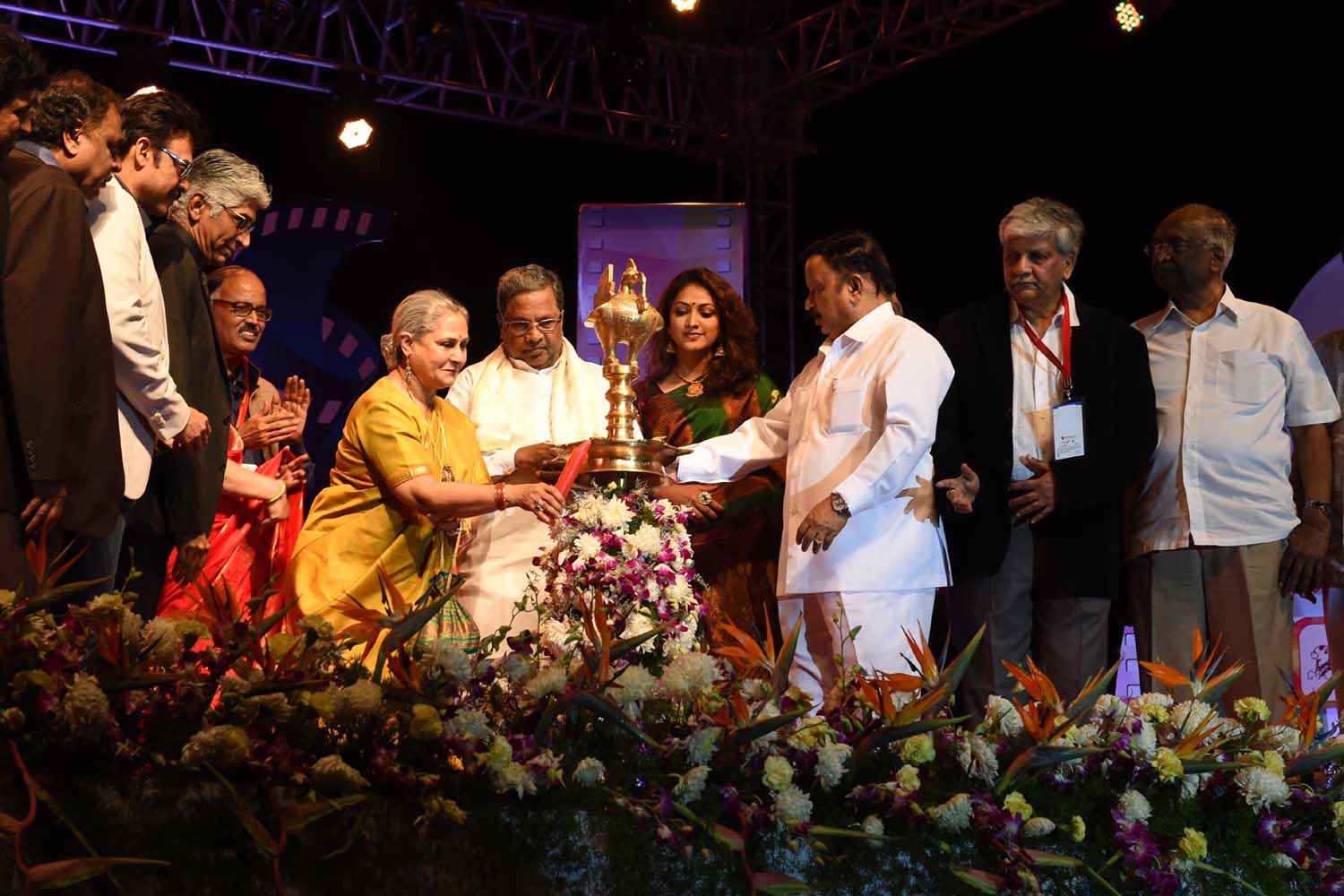“A butterfly is a miracle, a divine creation that fleets, propelling the caterpillar within, an array of predators it cheats.” “Break free of your cocoon and give yourself the freedom to fly.”
The nearly 3.08 mins long drawn monologue intoned by the masked teller of tales providing a philosophical template to the 116 mins debutant feature Roopanthara aka Transformation, by the new entrant on the Kannada movie marquee – Mithilesh Edavalath, as credits roll by, sets the stage for the stringed quarter of disparate anthology of stories that make the film.
The Butterfly Effect, as a philosophical premise,“asks us to be thoughtful with our decisions because we never know what the consequences of those decisions are. It can also be incredibly motivating, as it suggests that our actions do matter in altering the trajectory of the world, no matter how small they might be.”
Elucidating further, it is argued that “the butterfly effect teaches us that our action now, today, would have been the result of a previous action and this could in turn, lead to a future action. With one small gesture, you can change somebody’s life.”
With the “butterfly” as his “central motif” for conveying his metaphorical meaning and purpose behind his mixed medley of intertwined stitch of stories holding a mirror to the “malfeasance” gnawing at the vitals of our society and world around us, Mithilesh tries to ingrain his intellectualised vision among his audiences.
“The world is dead. Decay is all around. How did we end up here? What’s the reason? Our selfishness? Our greed? Ideologies have fallen. All that’s left is a harsh hierarchy with the weak crushed beneath. This world rots around me as I journey from place to place telling stories along the way,” laments Roopanthara’s Interpreter of “societal” Maladies that the film brings to fore as its unfolds its foursome fables capturing the facets of fissiparous society, we are witnessing around us.
A swaggering rowdy running roughshod over all and sundry smashes the hands of a debtor, before impaling his knife in the throat of a techie,who, while on his mobile, having brushed the roughie busy relieving himself, invites the gutter sniper’s wrathprovoking himinto murderous rage by pelting a stone at him and thereby inviting his death.
A beggar woman speaking a gibberish lingo is dragged to the police station by a racist mob on suspicion she is a kidnapper while an influential retired army man demands her incarceration because she had the audacity to slap him, which, he truly deserved,while he tries to pluck the child from her arms.
A conscientious rookie cop, however, watches with dismay and discomfiture how the society has ranged against thewoman they are unable to comprehend, communing with his superior uncle who provides his own two anna gyaan to the befuddled boy.
A bantering farmer couple, with wife at death’s door,from distant Bagalkot,head to Capital City Bengaluru only to face the harsh realities of disparities and dehumanised society and their blissful universe blighted by the uncaring city and its denizens.
Finally the PUBG addicted adolescent lad coming to terms with the pains of his trauma suffered by the domestic violence inflicted in childhood decides to take the daring last step that would give me the utmost pain before eternal release.
As the storyteller drums his homily “in life every worm gets an opportunity to transform into a beautiful butterfly. Whether to transform self into a butterfly or die as a worm? With the decision to become a butterfly comes unavoidable pain. Pain beyond endurance. To break the self inflicted barriers with all might and struggle. To transform within and emerge free.”
As contrasting and contrived are the aspirational film maker’s assortment of homily driven stories, so are the way the MBA-turned-techie-turned film director’s attempts to present the conflicting contrast of social issues of the power dynamics between the privileged and underprivileged, the stifling structures around us.
What could have been turned into a humdinger of a nifty nuanced narrative of the ensemble thematic concerns,director Mithilesh brings to the “entertainment” table, is, however, turned into a rather mundane “done to death” fare with ill refined scripting that needed better burnishing to make it coveted cinema.
Much as one appreciates Mithilesh’s larger vision and promising induction into the world of cinema, what however,roils one is Roopanthara woefully falls short of creative engaging cinema in trying to be a routine crowd pleaser with no attempts to rise above the ordinary.
Be it the futuristic opener of the film with gun totting mean men out on a decimation mission, which has no connection with the tales that unravel thereafter., the needless bashing of the hands of the debtor by the rowdy with the Rubix cube to portray his personality, the gibberish language provided to the beggar woman so that she remains a suspect, the stupefying way the hospital staff conduct themselves with the ryot couple who don’t understand an iota of English.
Given that Mithilesh, who has cut his teeth as assistant director in Kannada and Telugu filmdom, aspires to be a well meaning director of notice, it would have been worth the while had the young man worked with his stories and script even better than the way it has turned out making it trite and tiresomely familiar.
The only episodes that stand out among the quartet is that of the beggar woman and the conscious stricken cop and the bantering farmer couple. Not that these were devoid of any pitfalls but they surely hold the show from sinking into the morass of its own creation.
In sum, Mithilesh’s Roopanthara, like butterflies, seeks to remind us “to trust our transformational process, especially when it feels dark and cramped. It can be painful and difficult when we outgrow a belief, relationship, job, or habit because we are moving from something we understand to the shadowy underworld of the unknown. Growth can feel like intense upheaval and things falling apart. It can feel like endlessly waiting in a tiny chrysalis. Growing pains, like labour pains, usher in beautiful new life.”
by

S VISWANATH is a veteran film critic who officiates as JURY at several National & International Film Festivals. He deputises as CHIEF CINEMA CURATOR/PROGRAMMER & CREATIVE ADVISOR for Bengaluru International Film Festival (BIFFes). He also curates & advises on the selection of shorts & documentaries for Bengaluru International Short Film Festival (BISFF). Mr Viswanath is the author of “RANDOM REFLECTIONS: A Kaleidoscopic Musings on Kannada Cinema”.














Leave a Reply